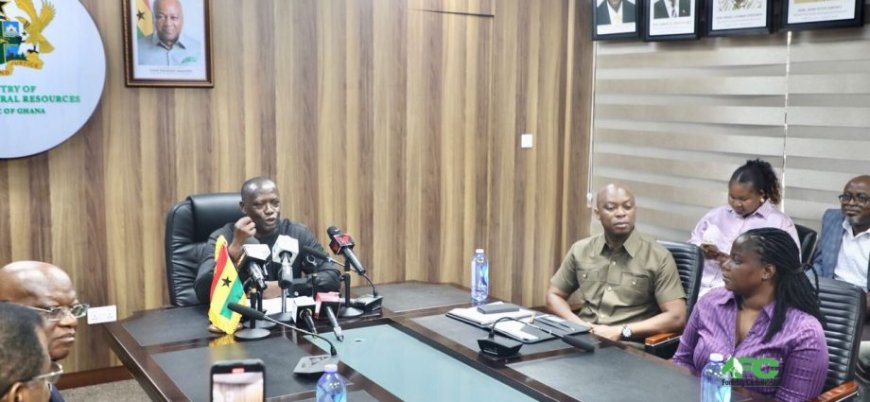Forestry Commission Vows Crackdown on Staff Colluding with Illegal Miners Amid Galamsey Scandal
By Top Knowledge Media | April 17, 2025 As Ghana continues to battle the growing menace of illegal mining, commonly referred to as galamsey, the Forestry Commission has taken a decisive stand—promising swift investigations and sanctions against any of its officials found aiding illicit mining operations.

The development comes in the wake of damning revelations made by the Minister for Lands and Natural Resources, Emmanuel Kofi Armah Buah, alleging complicity between certain commission personnel and illegal mining syndicates.
Internal Investigations Initiated
Elikem Kotoku, Deputy CEO of the Forestry Commission, confirmed that an internal probe has been launched to root out officers who may have colluded with galamsey operators. He affirmed that the Commission would not shield anyone found culpable.
“Officers found complicit in illegal mining activities will face full investigations, and any disciplinary action deemed necessary will be implemented without hesitation,” Kotoku stated.
“The Commission has clear ethical standards. Any breach of these principles will be met with firm consequences.”
Akonta Mining at the Center of Controversy
The crackdown follows a major exposé involving Akonta Mining Company Ltd., whose lease was officially revoked on Monday, April 21, by the Lands Ministry. Investigations have unearthed extensive illegal mining operations by the company inside protected forest reserves, particularly in the Aboi and Tano Nimiri Forests in the Western North Region.
Despite holding legal permits to mine off-reserve, Akonta Mining reportedly encroached on restricted forest zones, operating without the required authorizations.
In a press conference, Minister Armah Buah described the findings as alarming:
“Akonta Mining not only violated their license boundaries but also commodified Ghana’s protected lands—illegally granting access to third-party miners for GHS 300,000 per concession,” he said.
The investigations further revealed a shadow economy within the reserves, where illegal miners allegedly paid weekly royalties in gold—up to 250 grams—to maintain their operations under the radar.
Environmental Implications and Ethical Responsibility
The situation underscores Ghana’s ongoing struggle to protect its forest cover and water bodies from the devastating impacts of illegal mining. Galamsey continues to degrade biodiversity, pollute rivers, and threaten rural livelihoods.
For the Forestry Commission, the stakes have never been higher. The scandal not only questions the institutional integrity of key public agencies but also challenges the state’s ability to safeguard its natural heritage.
“If we do not hold our own accountable, we lose the moral authority to lead the fight against illegal mining,” Kotoku emphasized.
Next Steps: Accountability and Reform
The Commission has pledged to work closely with the Ministry of Lands and Natural Resources to ensure that justice is served and reforms are implemented to prevent future breaches.
As the investigation deepens and the public awaits tangible results, one thing is clear: Ghana's fight against illegal mining must start from within—with a commitment to ethical leadership, transparency, and strict enforcement of environmental laws.
Stay tuned to Top Knowledge Media Blog for ongoing coverage of Ghana’s environmental justice efforts, governance reforms, and the evolving battle against illegal mining.

What's Your Reaction?



















































































